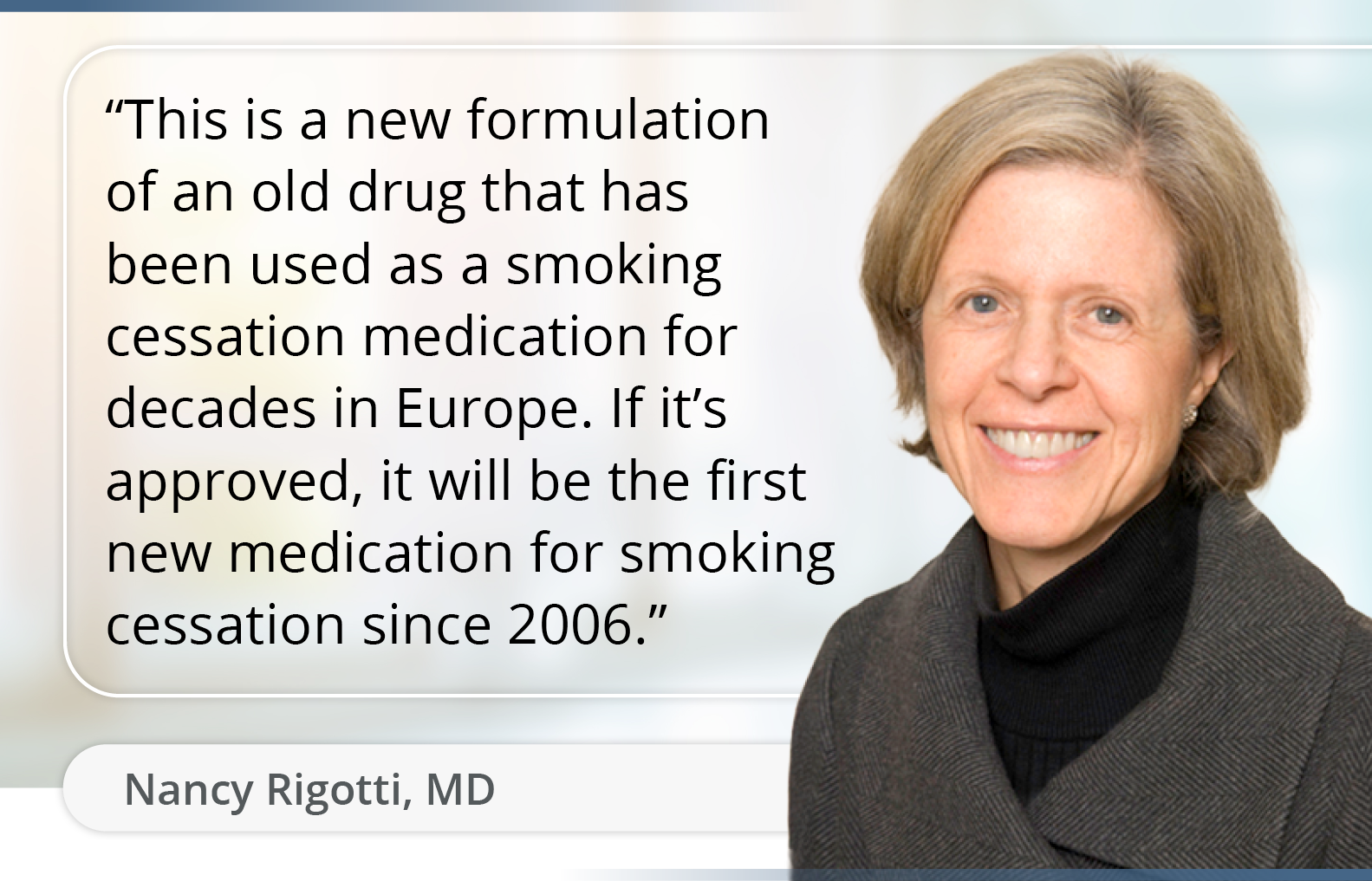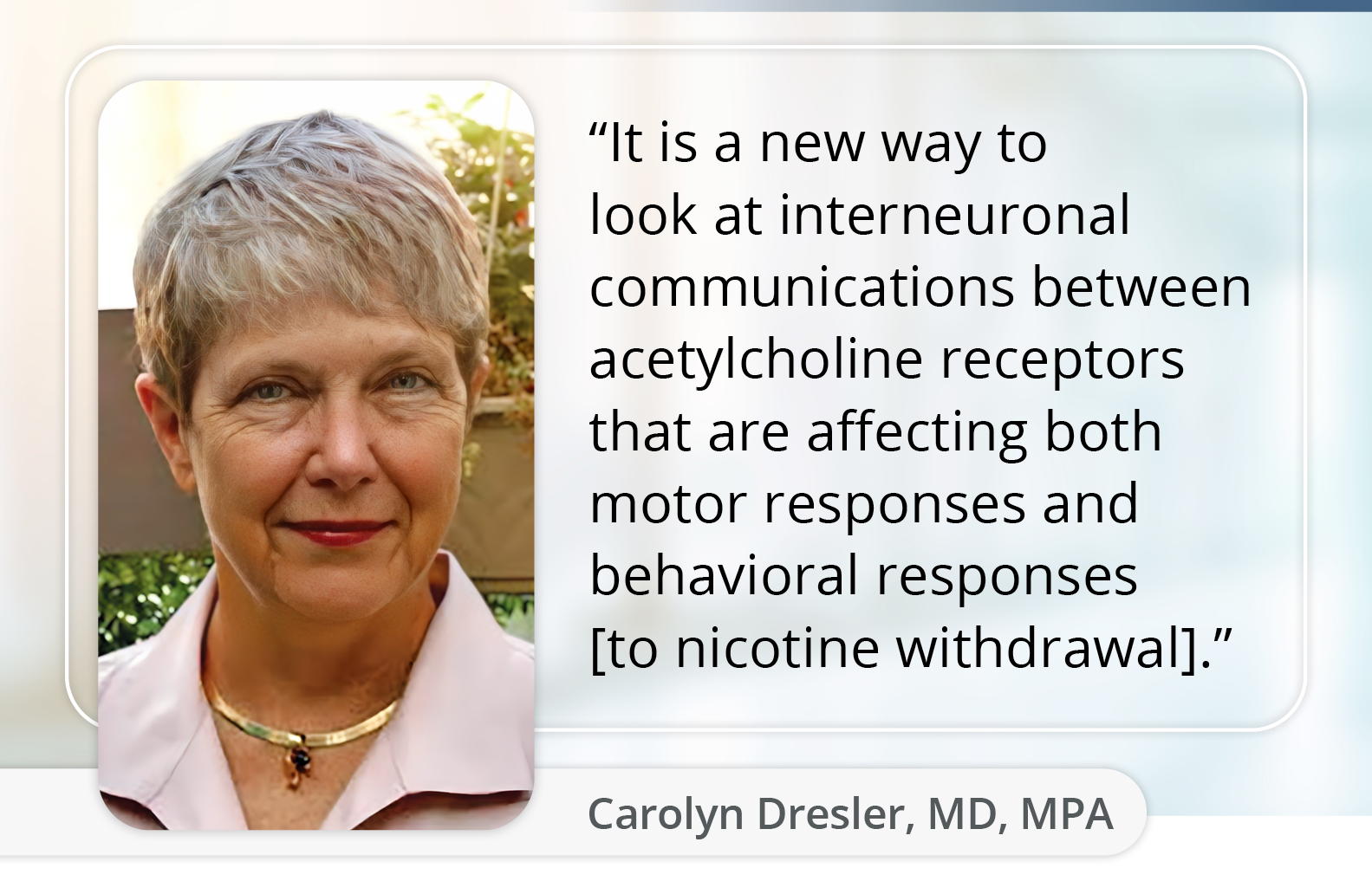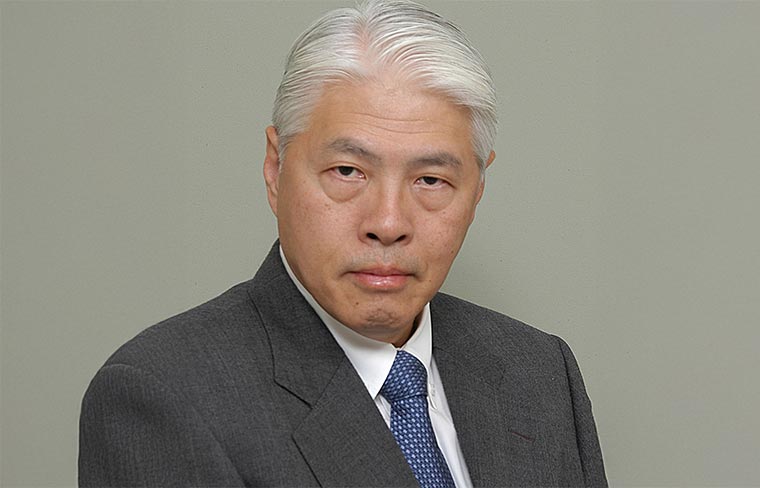Thoracic Oncology
-
Varenicline found effective for nicotine vaping cessation in youth
Researcher A. Eden Evins, MD, said she was surprised by the ineffectiveness of behavioral therapy alone.
-
EBUS nodal staging in early-stage non-small cell lung cancer
EBUS-TBNA disrupted the field of bronchoscopy by offering a minimally invasive, real-time imaging approach to biopsy, but recent data have emerged that show routine use of EBUS may warrant scrutiny.
-
Get informed and involved with smoking cessation strategies, advocacy
Sessions will equip attendees with the latest information about the health consequences of e-cigarettes and cannabis. Because the landscape has evolved so much recently, misconceptions are common—even among clinicians, said Evan Stepp, MD, FCCP.
-
ORCA-3 replicates strong tobacco cessation results for cytisinicline
The ORCA-3 trial demonstrated that cytisinicline, a reformulated compound, significantly outperformed placebo by nearly six times in helping adults who smoke to quit.
-
In our navigational bronchoscopy ERA
The VERITAS trial is a turning point for interventional pulmonology, ushering in an era of high-quality comparative effectiveness trials poised to transform our approach to technology evaluation, implementation, and, ultimately, patient care.
-
Opening the flood gates: Pleural complications of immune checkpoint inhibitors
The pulmonary and medical oncology community must start to consider pleural complications as a potential risk of immune checkpoint inhibitor therapy.
-
Parkinson’s drug shows promise as treatment for nicotine addiction in mouse model
Tobacco cessation expert, Carolyn Dresler, MD, MPA, said new evidence of cross talk between different types of acetylcholinergic receptors could be an important step for future research to determine if, and at what doses, these results could be replicated in humans.
-
POCUS for temporary intracorporeal and extracorporeal mechanical circulatory support
POCUS use refines diagnostic accuracy, enhances procedural safety, and optimizes outcomes for patients requiring advanced circulatory support.
-
Understanding high-risk factors like PM2.5 in lung cancer
Renelle Myers, MD, FRCPC, discusses factors beyond tobacco use that clinicians should consider when screening for lung cancer, such as pollution exposure.
-
Updates in ninth edition of TNM classification criteria allow for more precise lung cancer staging
Hisao Asamura, MD, said the changes are critical to clinical decision-making in the evolving thoracic oncology treatment landscape.
-
Artificial intelligence in lung cancer management
As artificial intelligence continues to integrate into clinical practice, the future of lung cancer management is shifting toward precision-driven, data-informed strategies and risk prediction models.
-
Exploring the evolving landscape in combination therapies for EGFR-mutated advanced NSCLC
Susan Scott, MD, discussed the findings from the MARIPOSA and FLAURA2 trials and the next steps to identify who may benefit from which regimen.












